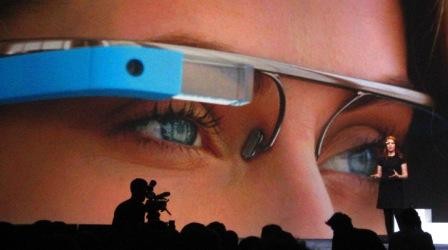

Confusion surrounds the future of Google Glass, after the search engine giant announced it is ending the beta programme and will stop selling the wearing devices in its present form.
The move to end sales of the device could potentially anger developers and organisations that have developed real-world applications for the device, and to those that spent money on the smartglasses.
Google Glass was launched in the United States back in 2013 to the developer community under the Explorer programme. That allowed developers to purchase the device for $1,500 (£990). In May 2014, Google opened up sales of the wearable glasses to everyone in the United States. It then went on sale in the UK in June 2014 priced at £1,000.
Since that time, many organisations including the likes of Tesco, Virgin Atlantic, Edinburgh Airport and even the police in Dubai have used the device.
“As we look to the road ahead, we realize that we’ve outgrown the lab and so we’re officially ‘graduating’ from Google[x] to be our own team here at Google,” said the post. “We’re thrilled to be moving even more from concept to reality.”
“As part of this transition, we’re closing the Explorer Program so we can focus on what’s coming next,” Google said. “January 19 will be the last day to get the Glass Explorer Edition. In the meantime, we’re continuing to build for the future, and you’ll start to see future versions of Glass when they’re ready.”
The vague announcement has left many fearing for the future of the Glass Program as a whole.
Google for example did not mention at all what the move means for the current generation of Google Glass Explorers (i.e beta testers), and did not put any timeframe on when the next device will be produced.
Google did say however it was committed to the future of the product, and would continue to support companies using Google Glass. And it seems that even though members of the public will be unable to buy it after 19 January, Google will sell it to companies and developers for work applications.
The Wall Street Journal reported Google as saying that a new version of the device will be available sometime this year. The updated gadget will be cheaper and have longer battery life, improved sound quality and a better display.
In December last year, it was rumoured that the second generation of the device would replace the Texas Instruments processor currently found in Glass with an Intel processor.
Google’s commitment to the Google Glass project was questioned in July last year, when it was revealed that Babak Parviz, credited with starting Google Glass, had left Google and joined Amazon instead.
Think you know about wearable tech? Try our quiz!
Solving not-spots? Ofcom proposal to make UK the first European country to allow ordinary smartphones…
Pioneering robotaxi service from Alphabet's Waymo to go live in Washington DC next year, as…
Dozens of Chinese firms added to US export blacklist, in order to hamper Beijing's AI…
Chinese rival BYD overtakes global revenues of Elon Musk's Tesla, as record number of Tesla…
Messaging app Signal in the headlines after a journalist was invited to a top secret…
OpenAI chief operating officer Brad Lightcap to oversee international expansion as company consolidates lead in…